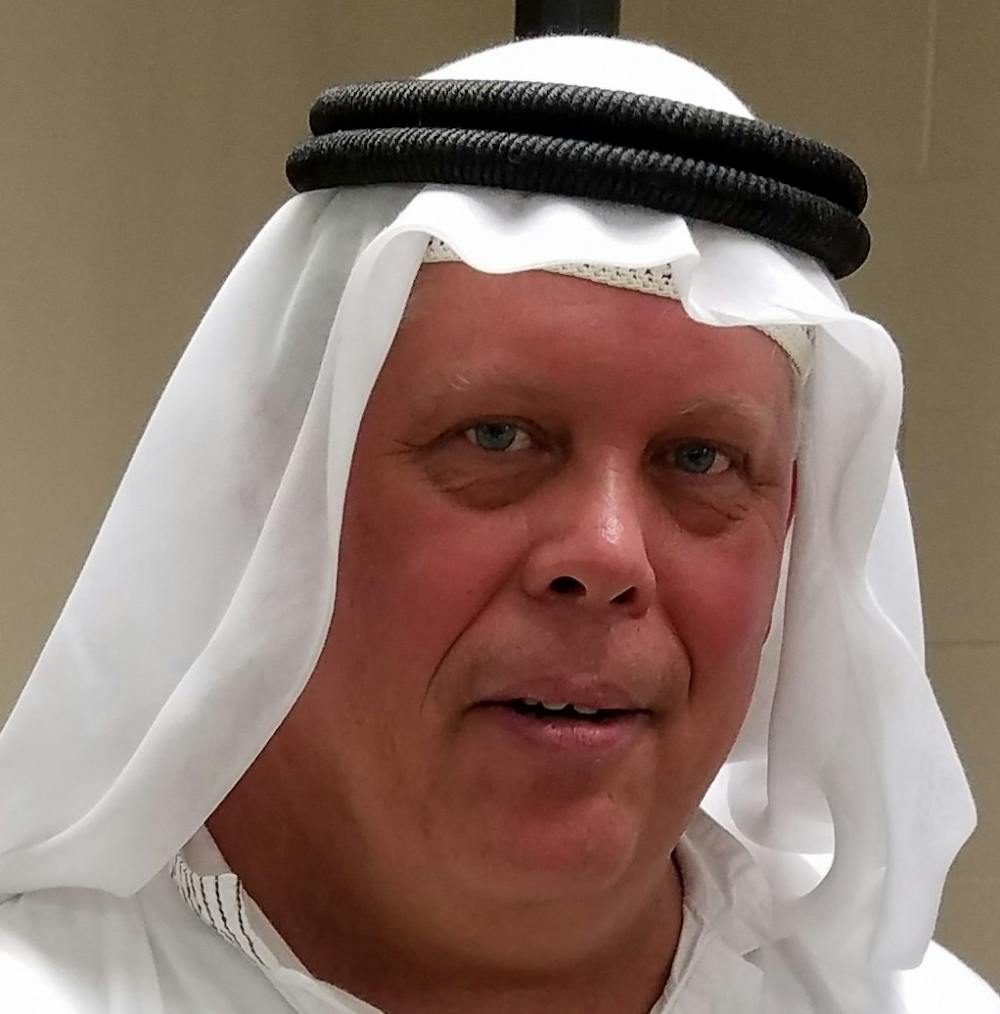With 2016 marking the 15th anniversary of the 9/11 terror attacks, many Muslims at Ball State feel negative views Americans have toward Muslims is still prevalent as a result of the attacks.
The Ball State Daily News asked Muslim students what they thought about the country's Islamophobia and how 9/11 influenced their lives.
Richard McKinney, a junior social work major with a minor in peace studies, is also a U.S. veteran. He was in bed when the attacks happened. His wife at the time woke him up to show him what was unfolding.
He remembers looking at the TV and wondering what was happening.
“I kind of freaked out,” McKinney said. “I was in the reserves so I got a hold of my command and asked them what was going on and they said ‘be prepared’ ... Everyone had a feeling that we would be going [to war], I just didn’t know where."
After 9/11, McKinney admitted he felt a strong hate for Muslims and even planned to attack the Islamic Center in Muncie, but he decided to take a step toward learning more about the people and religion.
McKinney ended up converting to Islam in 2009 and is now the president of the Islamic Center of Muncie.
“[People] are usually very surprised [that I’m a Muslim],” he said.
When he converted to Islam, the veteran identified himself in an ethnic way and dressed in traditional Islamic clothing.
“I changed that especially after becoming president [of the Muslim Student Association] because I wanted to identify with more people outside of Islam,” McKinney said. “It was almost kind of a strategy."
McKinney feels like Muncie is a great place for Muslims to live and believes Islamophobia is almost a non-issue in the community.
“The people who are really anti-Islam are very small pockets here in Muncie,” McKinney said.
One issue is his family though, who still hasn’t accepted his faith.
“My family refers to me as traitor and a hypocrite,” he said. “They don’t understand how an American can be a Muslim, especially a veteran.”
His stepmother has told him that she doesn’t want "any of that Islam stuff in her house".
Huda Al Herz, a graduate assistant for the Rinker Center for International Programs, was in her home country of Saudi Arabia when the 9/11 attacks took place.
“[The attacks] shocked all of us and affected us," Al Herz said. "I don’t know people who were killed but it emotionally affected us.”
Al Herz has worked in the Islamic Center of Muncie in the past, and said there has been instances where people had been pointed out for being Muslim. One of these instances was in November 2014 when a woman posted a status on Facebook about a Muslim woman who was wearing a niqab, a veil worn by some Muslim women, in the Muncie Mall. The woman who made the Facebook post was worried that a terror attack was in the works.
Al Herz has been in Muncie since 2010 and she also has a positive outlook on the community. She believes Islamophobia can be challenged through education and communication.
“People here are much friendlier compared to other areas [in Indiana],” she said. "When I worked in the Islamic Center of Muncie we try and reach out to people, try to talk, volunteer, like cleaning up the White River," Al Herz said.
Some students, however, don't have strong recollections of 9/11. Saleem Abufares, a junior construction management major and president of the Muslim Student Association, barely remembers the attacks because he was so young at the time.
“I was in first or second grade,” Abufares said. “I was in school mid-day and I remember it felt different — it didn’t really feel like a regular school day.”
He does remember his family, who is originally from Libya, being very upset, and those emotions are what he said he can still remember. Growing up, the Libyan-American recalls learning about 9/11 in class and believes that it wasn’t just bad for America but bad for everyone in the world. He also said that people shouldn’t point their fingers at a specific race or type of people and call them terrorists.
Abufares cited the shooting by James Holmes, an American who killed 12 people in a movie theater in Aurora, Colorado, as an example. Abufares also thinks people who kill others in the name of Islam aren’t really Muslims.
“They are their own demonic self,” he said.
Abufares' goal as president of the Muslim Student Association is to spread the message that Islam is a religion of peace and the group is here with open hands to anyone in the community, including those who practice other faiths.
“We are just like everyone else," Abufares said. "We are just regular human beings; we just have a different faith.”




